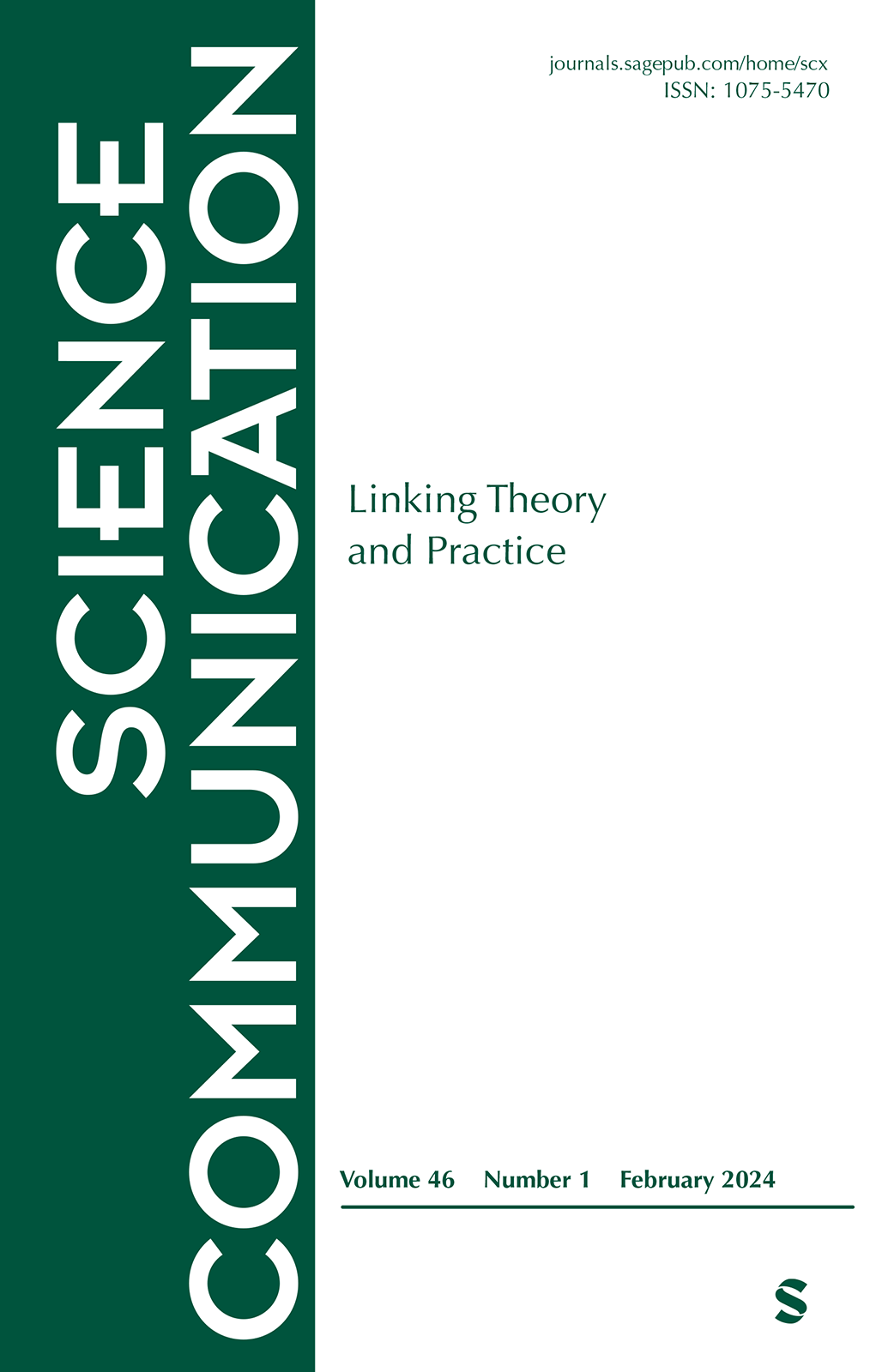别抬头看:科学传播再访
IF 4.1
1区 文学
Q1 COMMUNICATION
引用次数: 1
摘要
在我的研讨会“讲故事和故事板科学”中,我教科学家如何使用电影中的叙事技巧和策略来制作有说服力的演示和出版物。尽管电影《别抬头》最初是一部关于气候变化的寓言,以及决策者不听科学家的话,但事实上,这部电影确实突出了科学家如何向更广泛的公众传播科学的重要问题。在这篇文章中,我讨论了这部电影如何说明我教学生在科学交流中应对的挑战。本文章由计算机程序翻译,如有差异,请以英文原文为准。
Don’t Look Up: Science Communication Revisited
In my workshops, Storytelling and Storyboarding Science, I teach scientists how to use the narrative techniques and strategies employed in movies to produce persuasive presentations and publications. Although the movie Don’t Look Up was initially intended as an allegory about climate change and the idea that decision makers are not listening to scientists, this movie does in fact highlight important issues regarding how scientists communicate science to the wider public. In this article, I discuss how this movie illustrates the challenges that I teach my students to cope with in science communication.
求助全文
通过发布文献求助,成功后即可免费获取论文全文。
去求助
来源期刊

Science Communication
COMMUNICATION-
CiteScore
13.50
自引率
4.40%
发文量
19
期刊介绍:
Science Communication is a prestigious journal that focuses on communication research. It is recognized globally for publishing top-quality manuscripts that demonstrate excellent theoretical frameworks and robust methodology. Our journal embraces a broad definition of science, encompassing not only the natural and physical sciences but also social science, technology, environment, engineering, and health. Regardless of the scientific area, effective communication is always the focal point of our investigations.
Apart from theoretical and methodological rigor, we place great emphasis on the practical implications of scientific communication. Therefore, we expect all submitted manuscripts to address the real-world applications and significance of their research, alongside theoretical considerations.
In summary, Science Communication is an internationally renowned journal dedicated to bridging the gap between science and society. By promoting effective communication in various scientific domains, we strive to engage readers with intriguing research that has tangible implications for the world around us.
 求助内容:
求助内容: 应助结果提醒方式:
应助结果提醒方式:


